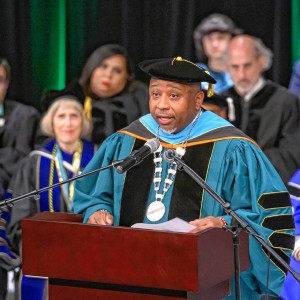State rolls out $2M drug education initiative for middle schoolers
| Published: 06-06-2017 11:48 PM |
A new public-private initiative could see drug education programs instituted at many of the state’s middle schools by next academic year.
The program, dubbed “Project Here,” is a $2 million addiction-prevention and education initiative that state Attorney General Maura Healey’s office is funding with settlement money together with a $1.5 million contribution from the GE Foundation.
As Massachusetts continues to face the grim realities of a nationwide opioid epidemic, Healey’s office said the new effort is meant to address a lack of youth prevention and education services as a bulwark against addiction at an age when students are particularly vulnerable.
Of the 2.8 million new users of illicit drugs in 2013 nationally, 54 percent were under the age of 18, according to statistics from the National Institute on Drug Abuse.
“Education and prevention are the keys to ending the opioid epidemic, and our partnership with the GE Foundation will help us tackle this public health crisis and protect our middle school students from addiction,” Healey said in a statement announcing the initiative.
Project Here aims to increase students’ access to a support network of social workers and people in recovery, supply schools with addiction education curriculum and provide a mobile app for young people to connect with each other and addiction resources.
The program will combine classroom programs with mobile content and access to a support network of social workers.
The GE Foundation said funding Project Here is part of its commitment to contribute $50 million — $15 million of which is intended to improve community health — to Boston and the surrounding area as the company moves into the city. Healey wants the initiative to be in all Massachusetts schools when classes start again in the fall.
Article continues after...
Yesterday's Most Read Articles
To make Project Here a reality, the attorney general’s office and the GE Foundation are partnering with The Herren Project, a nonprofit assisting those struggling with addiction, as well as the mobile technology and marketing research company Epicenter Experience, which will develop the app for young people.
“It’s really all about connecting people together,” Paul Krasinski, co-founder and CEO of Epicenter Experience, told the Gazette.
Epicenter Experience’s app will provide an outside-the-classroom platform for middle schoolers to share their own stories and discuss addiction with peers across the state, Krasinski said. The application will also allow students to connect with The Herren Project and its support team of counselors and social workers.
“I think they know that those are the people they’re supposed to go to,” Chris Herren, the founder of The Herren Project, said of students facing addiction in their own lives.
The problem, he said, is that many students are hesitant to do so when those experts in a position to help are based at the student’s school.
“I think oftentimes kids are hesitant to go to people on-site,” said Herren, a former Celtics basketball player whose career was derailed by his own struggles with heroin addiction. “They’re more apt to reach out to a third party.”
An app, he said, provides that needed distance for students to feel comfortable coming forward and asking for assistance, whether it be regarding a family member’s addiction impacting their lives or their own substance use.
It’s unclear, however, what kinds of privacy protections would be available so that students can come forward to talk about potentially criminal behavior on such an app without fear of being caught up in the criminal-justice system. Krasinski, the CEO of Epicenter Experience, referred such legal questions back to the attorney general’s office.
Also uncertain is what the educational toolkits that schools receive will look like. Previous drug education programs like D.A.R.E were criticized for an abstinence-only “Just Say No” message that didn’t include any harm-reduction materials for students already using drugs or considering drug use.
The Gazette attempted to speak with Healey about those issues, but she was unavailable for an interview.
Emalie Gainey, a spokeswoman from Healey’s office, said the mobile app will give students, parents and teachers information and resources about substance abuse, and that more details would be forthcoming in the weeks ahead. The educational toolkit, she said, will consist of evidence-based prevention curricula, and will be developed with the input of an advisory board of experts and key stakeholders.
“I think it’s very well-intended, and I think it has lots of good possibilities for districts to receive resources that are much needed,” Tom Scott, executive director of the Massachusetts Association of School Superintendents, said of Project Here. “We always, given our fiscal situation and limited resources in many respects, find that having those additional resources can be very useful.”
The more difficult part of rolling out the program, Scott said, is finding out where those materials fit into the pre-existing curriculum and class time.
For some schools with robust health courses, he said, that will be an easier task, making a fall rollout more likely in those schools. For other districts, however, it may be more challenging to work those substance abuse materials into classes immediately.
“It’s going to take a little bit more creativity to think about how to do it,” Scott said of those schools, suggesting that not all of them will be able to include Project Here in their plans right away in September.
Dusty Christensen can be reached at dchristensen@gazettenet.com.

 New HCC president reflects on journey: Timmons sees his own struggles and arc in students’ paths
New HCC president reflects on journey: Timmons sees his own struggles and arc in students’ paths South Hadley man fatally shot in attempted robbery
South Hadley man fatally shot in attempted robbery Historic murals restored at Victory Theatre in Holyoke
Historic murals restored at Victory Theatre in Holyoke Boards balk at limiting use of Hadley Town Common
Boards balk at limiting use of Hadley Town Common
